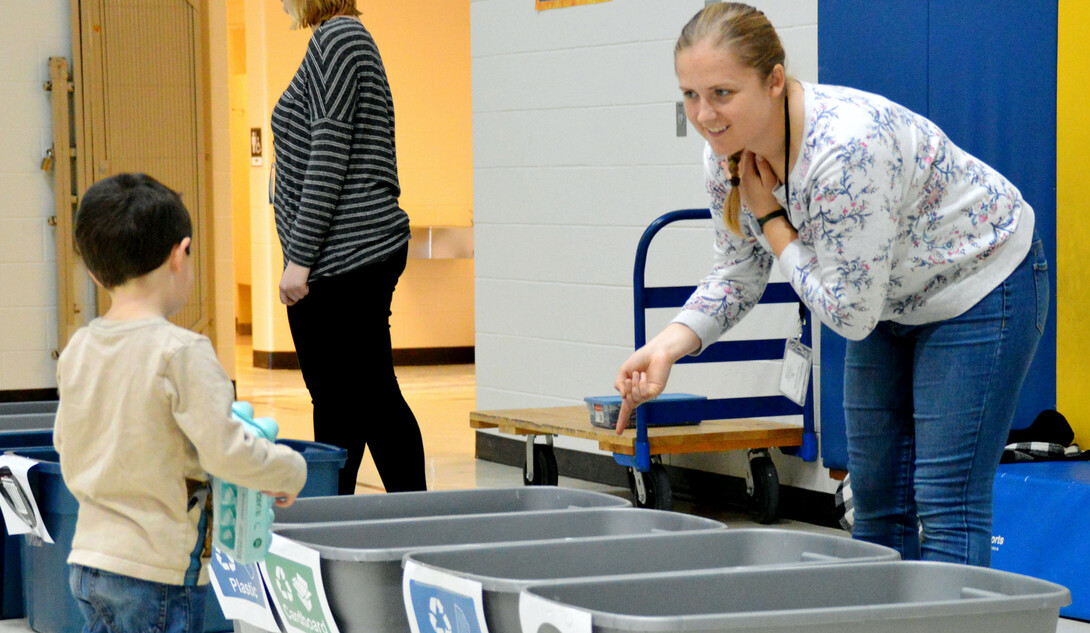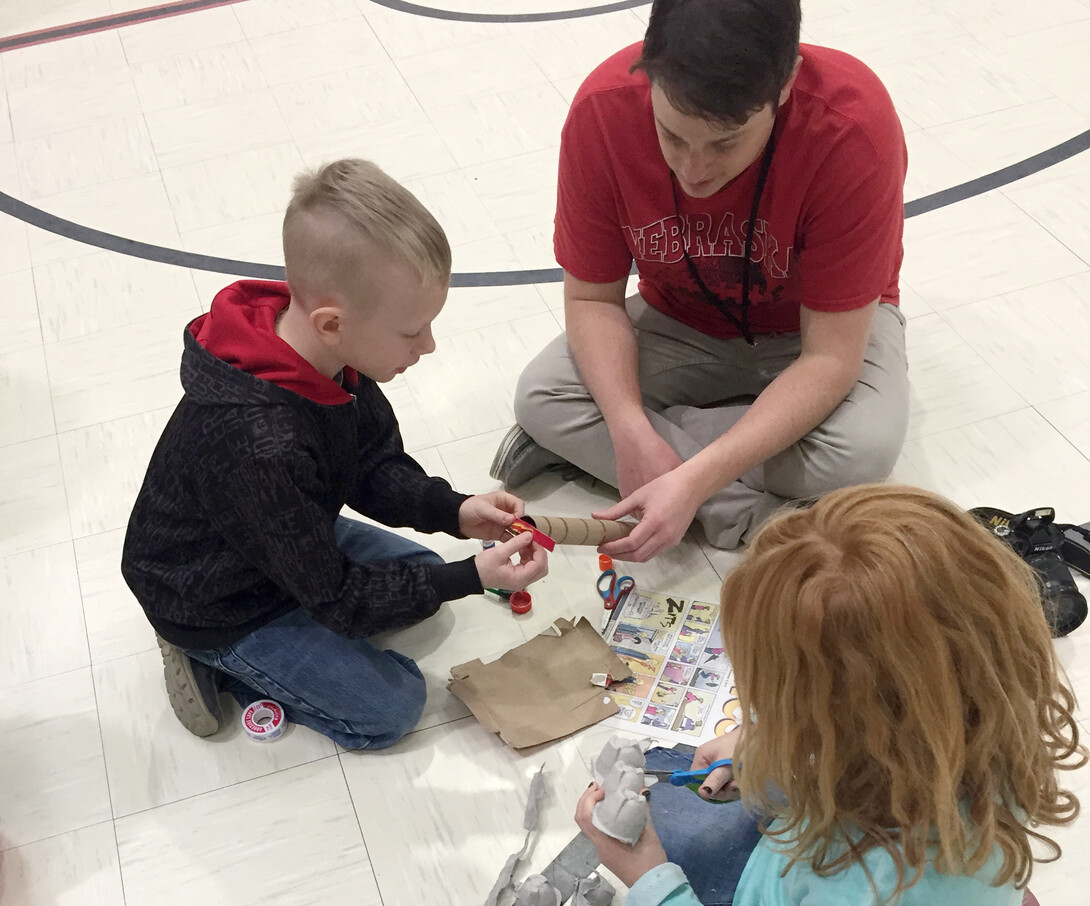
The University of Nebraska–Lincoln’s Environmental Studies program recently earned national recognition as among the Best of Green Schools from the U.S. Building Council’s Center for Green Schools.
Among the nine programs and individuals honored by the Center for Green Schools, Environmental Studies at Nebraska was given the Higher Education Institution Award for its ongoing partnership with Lincoln Public Schools.
Since 2015, under the advisement of faculty member Christine Haney Douglass and LPS sustainability coordinator Brittney Albin, students enrolled in an environmental studies introduction course have tackled projects for school sites and worked with K-12 students.
“We focus on conducting waste audits each fall and spring term and then working with partner schools, anywhere from three to eight per term, on either a Green Apple Day of Service project in the fall or Earth Day project in the spring,” Douglass, program coordinator and academic adviser for Environmental Studies, said.
In total, environmental studies students have conducted waste audits for 31 elementary, middle and high school buildings as well as the district office. This waste audit data and analysis is used by building administrators to add composting programs to individual LPS buildings and improve existing recycling programs.
The Earth Day and Green Apple Day of Service projects have included recycled art shows, renovation of courtyards into outdoor learning spaces and building pollinator habitats.

The Environmental Studies Program has contributed more than 2,400 student hours and $48,000 dollars in in-kind labor and research, but the partnership is invaluable to LPS, Albin said.
“We couldn’t do all of the audits ourselves – we just don’t have the staff numbers,” Albin, who is also an alumnae of the program, said. “And I think it benefits our students to have these experiences. It’s good for them to see another positive example of what’s possible in their futures.”
David Gosselin, director of Environmental Studies, said the partnership is a boon for the university students as well.
“We want our students doing real work on real-world problems,” Gosselin said. “What the students really gain out of these projects is communication skills and interacting with people they may not normally interact with. They’re driving the show, so they’re learning quite a few skills on the go.”
Gosselin’s 300-level course has also partnered with LPS, as students form small groups to work with “clients” who pitch needs for sustainability projects. Those projects have included the recycling program at Pinnacle Bank Arena, urban gardening for NeighborWorks, and working with Lincoln Electric System to remediate soil.







